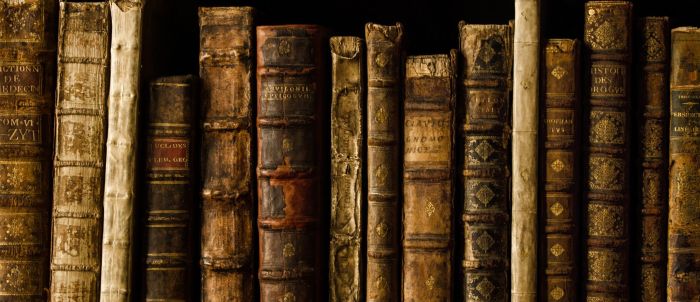
History professors’ recommendations for those who love reading history
We asked faculty to nominate books they have read this year that they enjoyed and would recommend to our alumni.
Dr. Jennifer Davis writes, “The top of my reading list for the fall is Valerie Hansen’s The Year One Thousand, which argues that the kind of globalization we associate with contemporary society actually goes back to the end of the first millennium. The book touches on some of the concerns of my own work, but Hansen, a renewed historian of China and the Silk Road, comes at the question from a different geographical vantage point than me. She sent me a copy this summer and I am curious to see what she makes of the topic.
“In a very different vein, for pure escapism, I am reading Ariel Sabar’s Veritas, his investigation of a papyrus fragment that was purported to be from the earliest centuries of Christianity. The fragment was proven to be a forgery, but only after it fooled a well-known professor at Harvard Divinity School. Unraveling the story of the fragment takes Sabar from the halls of German academia to alien cultists in Florida. It is an often bizarre, but always fascinating, story.”
Dr. Michael Kimmage suggests David Nasaw, The Patriarch - a biography of Joseph Kennedy, which entails a “remarkable family story (of course), immigrant grandparents, careers in Hollywood, Wall Street and FDR’s Washington; experiment in isolationism as U.S. Ambassador to UK, ending in disgrace. And, in addition, being father to JFK.”
Dr. Julia Young offers that she would like to make a lowbrow suggestion this time: “For the past several months - while balancing distance learning for my three children and trying valiantly to still do my own research - I've been recreationally reading the Outlander series. It's about one (half?) step up from the trashy romance novels I used to stealth-read as a teenager, but it IS historical! It's based on the uprising of the Scottish Highlanders and then subsequent participation of Scottish immigrants in the American Revolution. Plus, there's time travel. There are eight books in the series (so far) and each book is longer than the next, so I'll be enjoying it as my recreational reading for a while yet. Oh, and did I mention that it's also been adapted for Netflix?”
Dr. Lev Weitz is reading Eve Troutt Powell's Tell This In My Memory: Stories of Enslavement from Egypt, Sudan and the Ottoman Empire: “It's a view on slavery, that ancient, terrible, and all too human institution, in a part of the world many readers may not be familiar with. Troutt Powell brings to life the stories and lived experiences of enslaved people throughout.”
Dr. Kate Jansen pulled two books from her shelf for us: “I am reading Geraldine Heng's The Invention of Race in the European Middle Ages, a book that is making waves and stirring debate among medievalists. Heng is disrupting our scholarly idea that race and racism began in the modern period. Instead she argues that racialized thinking emerged in the later Middle Ages as a result of Western Europe's multiple encounters with Jews, Muslims, Mongols, and Africans, among others. These encounters stimulated thinking about race and racial laws, long before there was either "scientific" evidence or an elaborated vocabulary of race. It's an important book whether you agree with it or not.
“For fun and distraction--which we all need more of these days--I continue to work my way through the Inspector Montalbano series. I'm heartbroken that its author, Andrea Camilleri, just died--and we'll have no more of the charismatic Salvo Montalbano, who keeps the lid on crime in the fictional city of Vigàta, Sicily. My favorite meta-moment was when Montalbano was assigned to a crime scene that was so repellant that he called Camilleri on the phone to object.”
Dr. Caroline Sherman recently read Béla Zombory-Moldovan’s intimate memoir of 1914, The Burning of the World, an astonishingly vivid account of a very short time at the front, written long after the events it depicts. Zombory-Moldovan offers keen emotional insight into conditions of numbness, shock, and avoidance without ever losing his connection to the reader.
Dr. Jenny Paxton strongly recommends “the trilogy by Hillary Mantel, Wolf Hall, Bring Up the Bodies, and The Mirror and the Light, about the career of Thomas Cromwell, advisor and ‘fixer’ to Henry VIII. Mantel perfectly captures the atmosphere of back-stabbing that bedeviled the Tudor court. It's beautifully written, too!“
